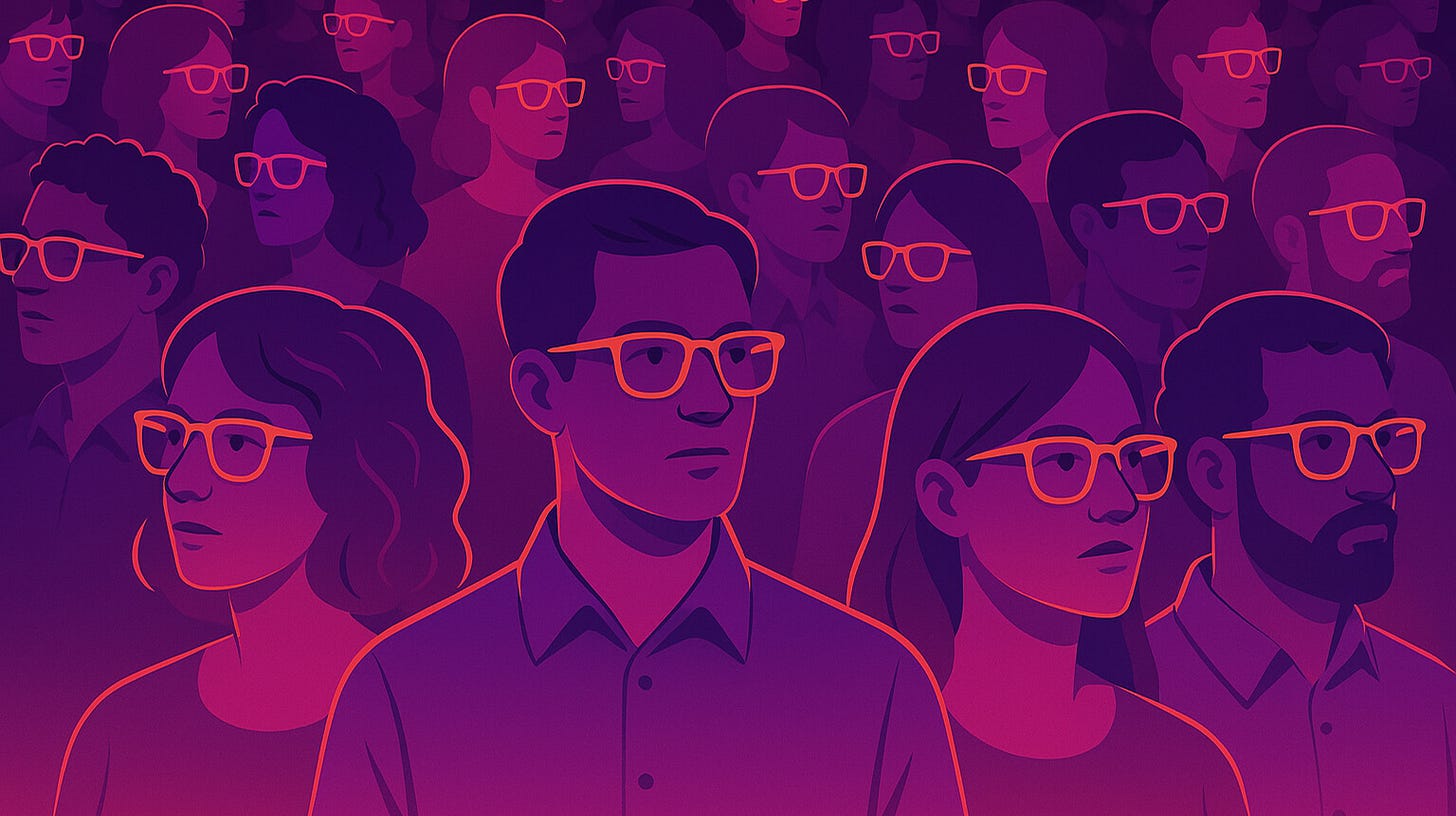C_NCENTRATE [FREE ISSUE]
IN THIS ISSUE: Nap-inducing robes, toxics receipts, more blind, oral Ozempic, fast slow coffee, human hibernation +++
THIS ISSUE IS FREE THANKS TO THE SMART COOKIES AT NOTION ↓
Thousands of startups use Notion as a connected workspace to create and share docs, take notes, manage projects, and organise knowledge—all in one place. We’re offering 6 months of new Plus plans, including unlimited Notion AI so you can try it all for free!
/// Play this ↓
Curated with neuroscientists, ’Focus’ is the official C_NCENTRATE playlist that aids your encoding and recall. Play as is, or hit shuffle.
/// Skim this ↓
Along with multiple new models and Enterprise options, OpenAI softened its stance on model safety, stating it may adjust its requirements if competitors deploy high-risk systems first. Elon Musk’s xAI rolled out Grok Canvas for building apps and documents inside the chatbot, expanding its UX beyond conversation. Google came under fire again for its AI-driven search experience. A new analysis revealed that AI Overviews link disproportionately to Google’s own properties, reigniting self-preferencing concerns. Meanwhile, Meta began locking down its AI access points and was reported to be testing new Llama models internally as it shifts toward more controlled deployment.
Infrastructure saw major realignment. Intel moved to sell its Altera unit to Silver Lake in a deal reportedly valued over $8 billion. SK Hynix officially overtook Samsung in DRAM revenue, powered by sustained high-bandwidth memory demand from AI hardware suppliers. Stability AI open-sourced Stable Audio Open, a model for generating short audio clips from text, under a non-commercial license.
Policy and regulation took center stage. The FTC opened a probe into Nvidia over its dominant position in the AI chip market. Trump created a new Chips Act investment office to centralise control of U.S. semiconductor funding. He then exempted smartphones, laptops, and chips from a new tariff package targeting China — a nod to domestic retailers as trade rhetoric escalates.
Geopolitical decoupling intensified. A Financial Times investigation detailed how American tech firms are rapidly unwinding ties with Chinese suppliers across cloud, semis, and AI infrastructure. TP-Link’s claimed operational split from China failed to convince U.S. lawmakers, leaving its U.S. market access uncertain.
Meta’s long-running antitrust battle continued as the FTC pushed its case that the company acquired Instagram and WhatsApp to neutralise threats. The judge called it “very close.” 4chan was taken offline following an alleged cyberattack, disrupting one of the internet’s most persistent extremist platforms. At the same time, Palantir quietly deployed MEGA, a cross-agency data access system spanning the IRS and 10 other U.S. federal agencies.
Crypto exchange OKX announced a U.S. relaunch with a new CEO and infrastructure footprint in San Jose. Bloomberg described the current state of crypto dealmaking as “manic”. In Asia, Q1 startup funding dropped 26% year-over-year despite AI deal volume, signalling a broader regional retreat from risk. Kodiak Robotics announced plans to go public via SPAC at a $2.5B valuation. And São Paulo triggered a major gig economy crackdown with a ban on motorcycle ride-hailing following a spike in fatal accidents.
/// Read these ↓
Precise TV is now offering a way to target minors on YouTube. /4 mins
↑ Konel's nap-inducing robe incorporates music and lighting to lull wearer to sleep. /5 mins
The case for human hibernation is growing (multigenerational projects etc). /17 mins
Paper receipts are not good for your health. /6 mins
A daily GLP-1 pill is coming and is effective at Ozempic and pals. /10 mins
Why no-one grows up anymore. /17 mins
Meta has blocked Apple Intelligence in all its apps. /4 mins
One-sixth of the planet’s cropland has toxic levels of one or more metals. /9 mins
Good pour over coffee is getting faster, and it’s going to save billions. /23 mins
RTO is forgetting that employees are customers too that pay with discretionary effort. /17 mins
↑ Good news for AR; half the world may need glasses by 2050. /5 mins
GOOGLE IS A MONOPOLY (AGAIN)
A federal judge has ruled that Google illegally monopolised parts of the online advertising market; the company’s second major antitrust defeat in less than a year. The ruling focused on Google’s control over ad exchanges and publisher tools, and while it stopped short of full liability across its ad stack, it clears the way for structural remedies, including a potential forced divestiture of its ad network business.
The case, brought by the Department of Justice and 17 US states, will almost certainly drag on. Google has already confirmed it will appeal. Just like the Microsoft case in the late 1990s, litigation at this level can move at a glacial pace. Appeals can take years, and outcomes often cycle back to district courts for further proceedings. On paper, that delay may seem like a buffer for Google. In reality, delay can be its own penalty.
Historically, legal distractions of this scale have had far-reaching effects on dominant firms. IBM spent more than a decade mired in antitrust litigation just as the personal computer industry took off. Microsoft ultimately survived its battle with regulators but lost critical ground in mobile and web search. During those years of legal fog, Google emerged. Now, as AI defines the next platform shift, the roles may be reversing.
OpenAI wasn’t mentioned in the 115-page court opinion, but it may emerge as one of the unlikely beneficiaries. Google’s position as a first mover in AI is already under pressure. ChatGPT’s rapid adoption shifted public perception, and the company has since been chasing momentum. A multi-year legal overhang will only add friction. Decision-making slows. Acquisitions get shelved. Internal risk appetite drops. The environment favours agile challengers.
The judge’s ruling also places Google under deeper scrutiny at home and abroad. European regulators will see the US judgment as validation, with further action likely under the Digital Markets Act. Agencies in India and Brazil have also shown increasing interest in ad tech oversight. Google is no longer just fighting one lawsuit. The company is defending a business model that underpins a major portion of its revenue and cross-platform integration.
Notably, the ruling does not target Google’s AI or search products directly. But the effect is systemic. Innovation slows when legal constraints expand. Microsoft’s experience after its antitrust battle demonstrates that even the most resilient companies can miss the next wave when they are too busy defending the last one.
SO WHAT?
The judge’s decision won’t transform Google overnight, but its impact begins immediately. Google’s ability to move freely, to partner, to acquire, to experiment — all of that is constrained. Internal focus shifts. Regulatory risk becomes embedded in every strategic conversation. AI competitors like OpenAI and Anthropic gain valuable time and space to define the next wave of consumer and enterprise behaviour.
A slow court process won’t shield Google from competitive pressure. It only ensures that pressure builds quietly, while the company is unable to respond at full speed. Every month Google spends in legal entanglement is a month its rivals get to build the future. The Microsoft precedent looms large for a reason. Surviving the courtroom is not the same as surviving the shift. For more on the shift subscribe to ‘What Did Google Do This Week?’.
DO: Expect a multi-year appeals process that becomes a policy backdrop for global regulators. Watch how investor sentiment changes around AI momentum and Big Tech risk, the markets are already checking their workings. Still, can’t hurt to see how much Google you have in your life, and, if it’s the right amount.
DON’T: Ignore the international implications. Europe, in particular, is likely to accelerate its own enforcement efforts. Think this will be brushed off? Think again. AI platform dominance is being decided right now, and every delay matters (a reason why Elon likes to throw so much sand around).
THANKS AGAIN TO THE SMART COOKIES AT NOTION FOR MAKING THIS ISSUE FREE ↓
Thousands of startups use Notion as a connected workspace to create and share docs, take notes, manage projects, and organise knowledge—all in one place. We’re offering 6 months of new Plus plans, including unlimited Notion AI so you can try it all for free!






